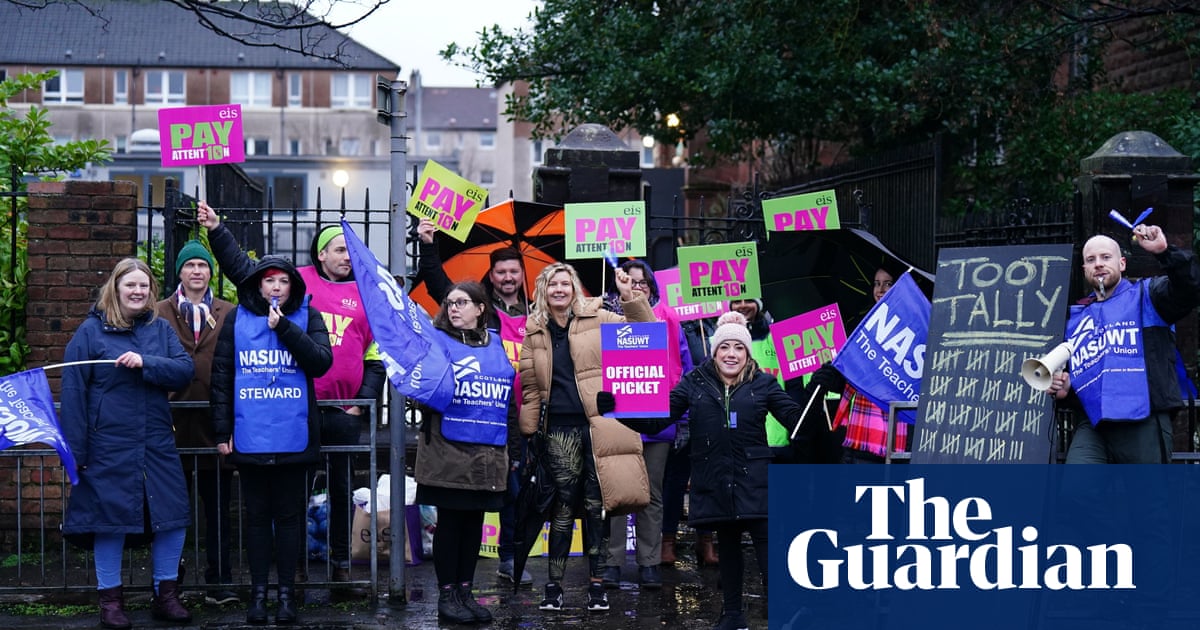
Almost every school in Scotland will be closed on Tuesday or Wednesday as part of a fresh wave of new year strikes over pay, despite warnings from the first minister, Nicola Sturgeon, that her government has “no more money” to offer teachers, as well as nurses and midwives.
Primary schools are closed all day on Tuesday, with secondary schools shutting on Wednesday, after members of the Educational Institute of Scotland (EIS), NASUWT and the Scottish Secondary Teachers’ Association (SSTA) rejected a 5% pay increase, including rises of up to 6.85% for the lowest-paid, arguing for 10%.
Last-ditch talks between the Scottish government and teaching unions on Monday failed to avert this week’s strikes, though the EIS said it was still hoping for a resolution before further strikes planned for next week. The latest school closures come after the biggest Scottish teachers’ strike in decades last November.
Speaking on the BBC’s Good Morning Scotland programme, Holyrood’s education secretary, Shirley-Anne Somerville, described the unions’ pay demands as “simply unaffordable”.
She added: “We’re trying very hard to have a fair and affordable package on the table but we do remain unfortunately some distance apart.”
The EIS general secretary, Andrea Bradley, said of Monday’s talks that it was “disappointing, though not surprising, that no new offer was presented, despite some positive progress in discussions”.
“The union side remains willing to talk, at any time, with a view to reaching a resolution to this dispute,” she added.
Following a further meeting with the Holyrood health minister, Humza Yousaf, on Monday, the Royal College of Nursing and the Royal College of Midwives are expected to announce their first strikes in Scotland shortly in an ongoing dispute over a pay settlement imposed on NHS staff in December.
On Monday, as Sturgeon unveiled a package of emergency measures to ease pressure on overwhelmed Scottish hospitals, she admitted she was pessimistic about the chances of averting strikes, stating her government had no more money to offer health unions.
“We have no more money this year,” she said. “I think this will be a very, very hard thing to achieve but I am very, very clear about the priority I attach to avoiding industrial action.”
She told reporters that Scottish NHS staff had been given 7.5% on average, compared with 4.5% in England and Wales, but indicated a fresh offer to improve terms and conditions could be made, with talks on next year’s pay due to start soon.
The RCM said it was continuing discussions with the health minister and the other unions, and attending an emergency round table on pressures on NHS Scotland on Wednesday.












